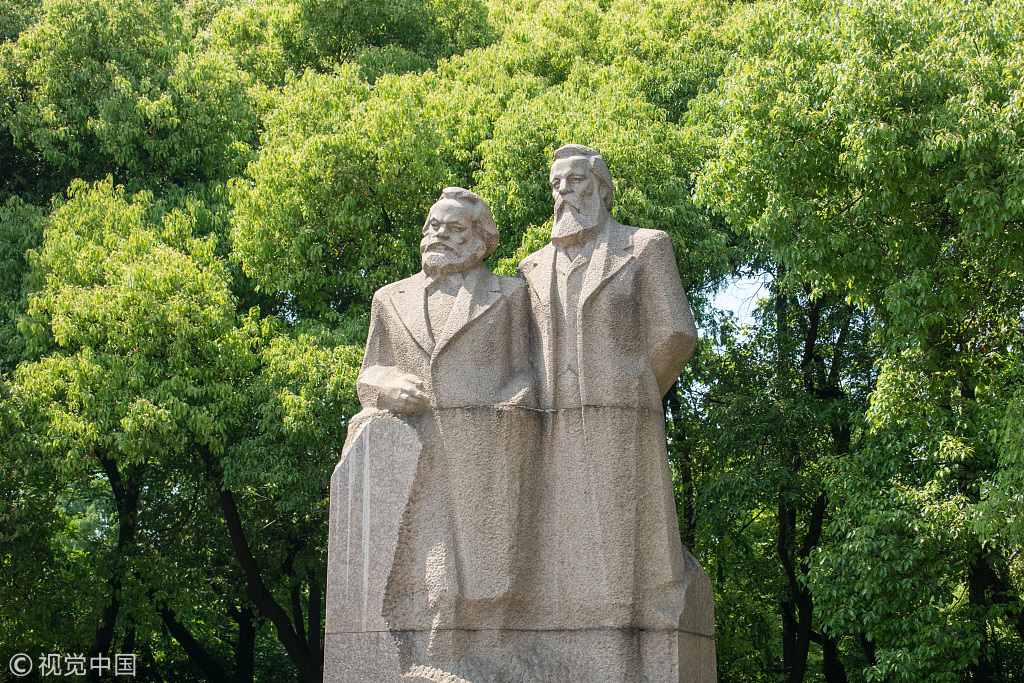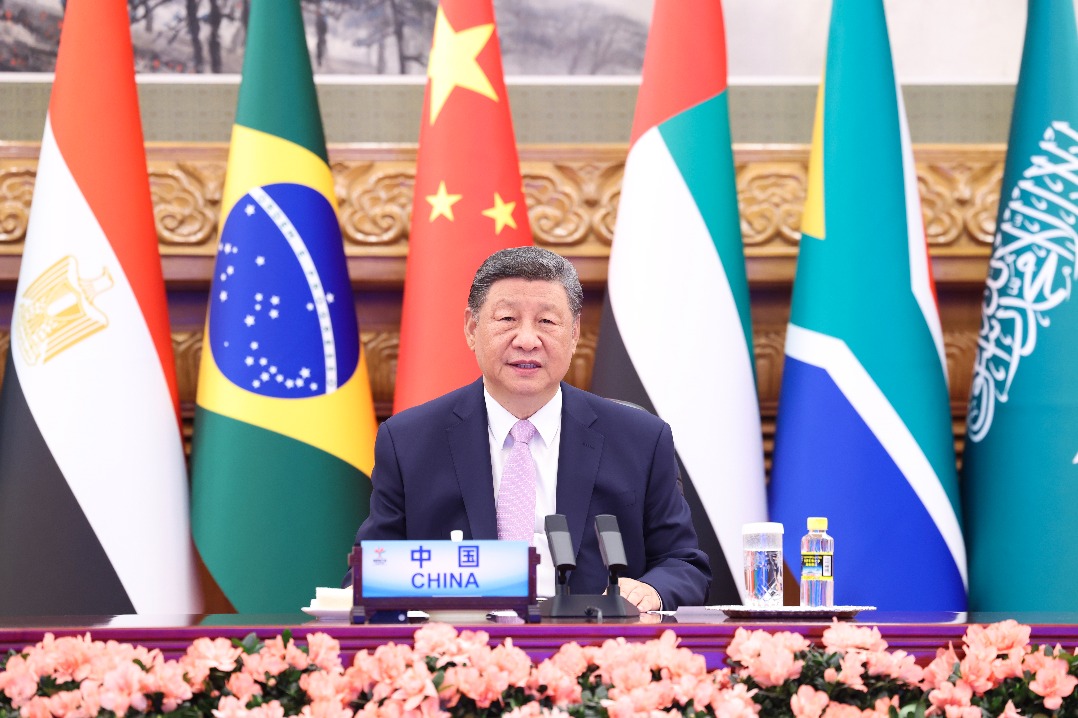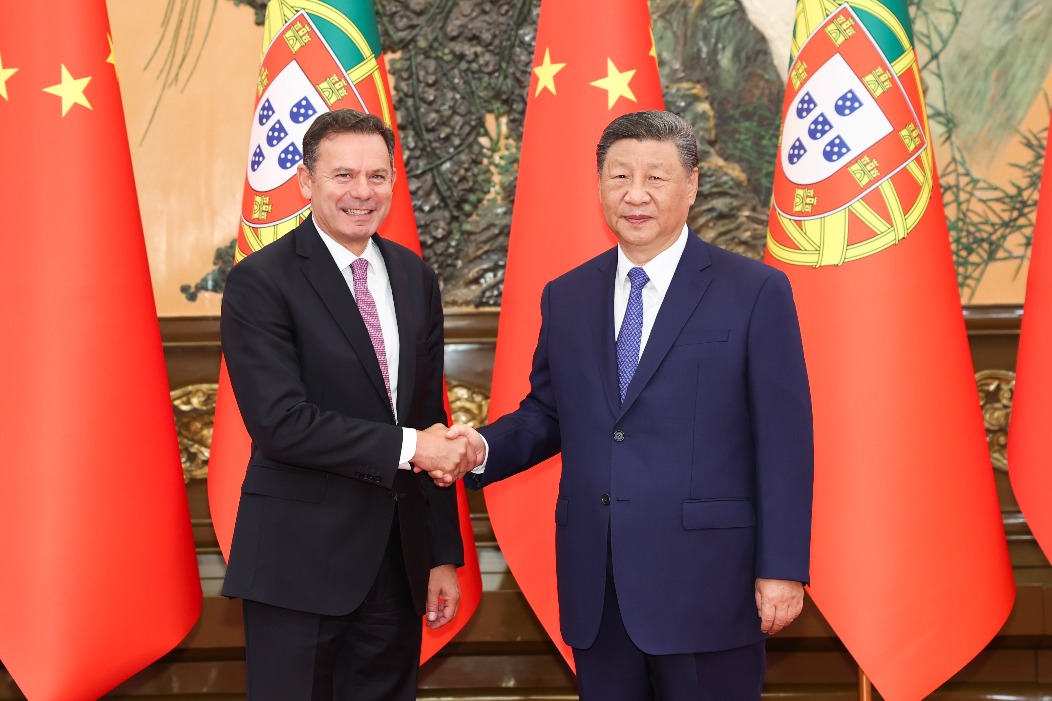200 years after Marx, his legacy lives on


A statue of Karl Marx and Friedrich Engels is seen at a park in Shanghai, May 3, 2018. [Photo/VCG]
After the dissolution of the Soviet Union — the world’s first socialist state — in 1991, neoliberal historians, economists and politicians declared Marxism dead and buried. This was proof, they said, the world had left Karl Marx’s political and economic theories behind. Capitalism had prevailed, and there was no longer any need to discuss an alternative.
Unfortunately for them, the people disagree.
This month marks the 200th anniversary of Marx’s birth, and despite claims to the contrary, the German philosopher’s legacy has never been more relevant. Though foundational texts like The Communist Manifesto and Das Kapital are many decades old, they continue to inspire exploited workers all over the world to throw off the shackles of oppression.
News media in the West has focused on an emboldened far-right in the United States and Europe after the election of US President Donald Trump and the Brexit referendum. But the other side of the ideological coin has also seen resurgence. Socialist and communist organizations have grown remarkably in recent months, and it’s the work of Marx and his successors that’s helped guide these fledgling activists. Time and time again, when asked why they joined, new members cite the writings of Marx, his compatriot Friedrich Engels, Soviet revolutionary Vladimir Lenin and Communist Party of China Chairman Mao Zedong as the texts that awakened them to the dire situation for workers in the “land of the free”.
And it isn’t hard to see why people in the US and elsewhere are looking to Marxism for answers. Poverty rates have gone up, or stayed level at best. More and more people are struggling to find good-paying work, with many leaving the labor force entirely. Student loans, credit card bills and housing costs weigh heavily on anyone lucky enough to have a job. When asked whether the lives of their children would be better compared to their own, an overwhelming number used to say “yes”. In recent decades, this optimism has been turned on its head; so much so most young people either can’t afford to have children, or don’t want to. Hard to blame them — if you don’t believe things are getting better, why bother?
All this woe is the backdrop for an enormous upward transfer of wealth. In the United States alone, the top 1 percent of earners’ share of national income has doubled since 1980, from 10 percent to 20, while the bottom 50 percent’s share has been nearly halved — falling from around 20 percent to just above 12 percent in 2015. Real incomes for the top percentile have also skyrocketed — nearly quadrupling. Meanwhile the bottom 90 percent don’t see enough of an increase to outpace inflation. Not what I’d call a success story for capitalism.
Those neoliberal economists weren’t just wrong about their own backyards, either. Countries that left socialism behind are paying the price. Those who lived in the Soviet Union before its demise know all too well the costs of abandoning Marxism; life expectancies and wages have plummeted, while unemployment has gone up. Sizeable majorities, when polled, admit life was better before 1991. The Communist Party of the Russian Federation is an influential force in Russian politics, but a shadow of the Soviet party in power that guaranteed the people a dignified, comfortable life.
Even with these facts in mind, one cannot simply sit and wait for the world to emancipate itself. Marxism, like all sciences, must be applied to the real world if it is to be useful to the global working class. It is, however, not a one-size fits all philosophy; what works for one people’s liberation might not necessarily work for another. The Soviet revolutionary base was the industrial proletariat, while the CPC received most of its support from rural farmers. Communist parties in each country recognize the unique aspects of their struggle, and act accordingly. In the advanced economy of the United States, for example, it would be folly to approach the situation as if it were the same as agrarian, pre-revolutionary China. Doing so would lead inevitably to failure. But that doesn’t mean communists and socialists elsewhere can’t learn from the CPC — its hard-earned knowledge on party-building and discipline remain essential, and the Party’s experiences governing an enormous land mass with an ethnically diverse population carry obvious lessons for any group looking to lead the US. This holds true for socialist countries or movements all over the world, providing a wealth of resources to draw from.
It is this quality which gives Marxism its prescriptive power and timeless appeal: The ability to adjust itself to historical and material circumstances. As this way of thinking necessitates a “ruthless criticism of all that exists,” as Marx put it, the theory itself is no exception. The CPC knows this as well as anyone; as the situation in China changes, so too must the Party’s philosophy. Though fundamental values have gone unchanged, such as serving the people and adhering to the socialist path, new developments require new ideas. This is why the Party treats Marxism as the beginning of a long theoretical journey, with each successive breakthrough adding to the philosophical tradition without supplanting that which came before. The line from Marxism-Leninism to Mao Zedong Thought to Deng Xiaoping Theory to the Theory of Three Represents to the Scientific Outlook on Development is an unbroken one, and the addition of Xi Jinping Thought on Socialism with Chinese Characteristics for a New Era signifies China’s latest adaptation. Just as Marx and Engels used the ideas of Georg Wilhelm Friedrich Hegel to develop what we now know as Marxism, and Hegel was in turn influenced by Immanuel Kant, communist scholars maintain an appreciation and respect for their predecessors while being careful not to fall into dogma. Without new innovations, any theory can stagnate — and when that theory is responsible for the continuing liberation of billions of people, stagnation can lead to disaster. Just ask the newly impoverished in the former Soviet Union.
So keep those consequences in mind if someone tells you Marxism is obsolete, or just a tool for analysis. With looming threats of climate change and political instability going unresolved by the capitalist world, it falls to China, a country committed to Marxism, to pick up the slack. Marx himself said in his famous Theses on Feuerbach that “The philosophers have only interpreted the world…the point is to change it.” Now, as sea levels rise and workers in the West grow restless, merely changing the world isn’t enough — Marxism must save it.
The author is a copy editor with chinadaily.com.cn.

































